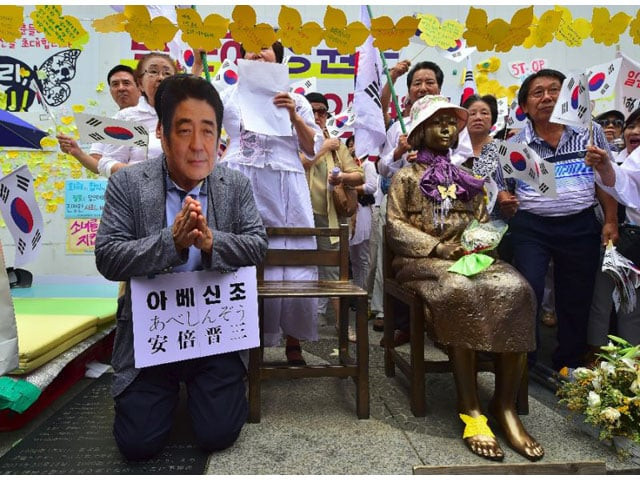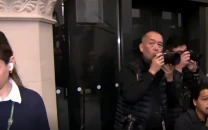Seoul to face lawsuit over 'comfort women' agreement
Under an agreement, Tokyo offered apology and a total of $8.5 million to the victims of wartime sexual slavery

Twelve South Korean victims of wartime sexual slavery said Tuesday they would take their government to court over its agreement with Japan last year intended to end the bitter historical dispute.
The so-called "comfort women" filed a lawsuit against the government for signing the agreement with Tokyo even though Japan refuses to acknowledge formal legal responsibility for the slavery.
In the action filed with the Seoul Central District Court, the 12 plaintiffs each seek 100 million won (US$90,000) in compensation from the Seoul government, said a group called the Foundation for Justice and Remembrance for the Issue of Military Sexual Slavery.
The plight of the women forced into Japanese military brothels, who are now in their 80s or 90s, is a hugely emotional issue that has marred relations between Seoul and Japan for decades.
Kabul to investigate child sex slavery fuelling insider attacks
For many South Koreans it symbolises the abuses of Japan's 1910-45 harsh colonial rule over the Korean peninsula.
Last December the two nations reached a "final and irreversible" agreement, under which Tokyo offered an apology and a total of one billion yen ($8.5 million) to open a foundation for the dwindling number of comfort women who are still alive.
South Korea's foreign ministry said last week that part of the money would be used for "individual" financial assistance, providing 100 million won each to surviving victims and 20 million won for the families of those who have died.
Taliban use child sex slaves to kill Afghan police
The 12 plaintiffs represent nearly a third of the 40 surviving Korean victims.
Mainstream historians say up to 200,000 women, mostly from Korea but also other parts of Asia including China, were forced to work in Japanese military brothels during World War II.



















COMMENTS
Comments are moderated and generally will be posted if they are on-topic and not abusive.
For more information, please see our Comments FAQ